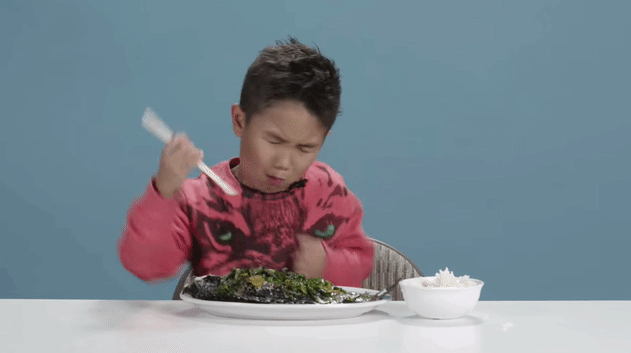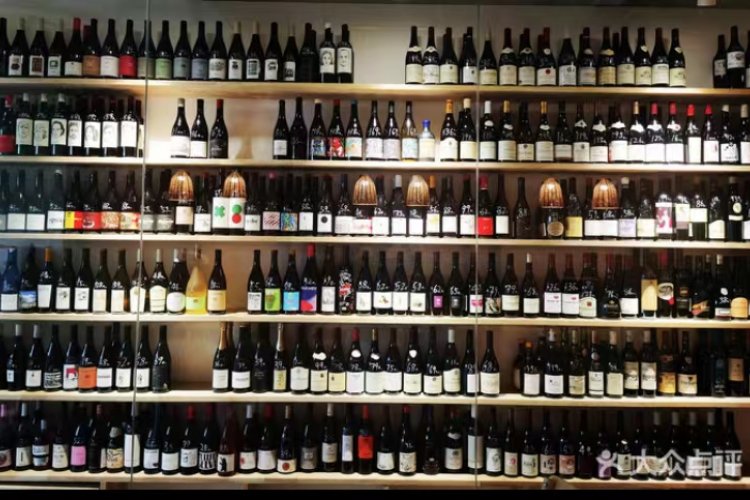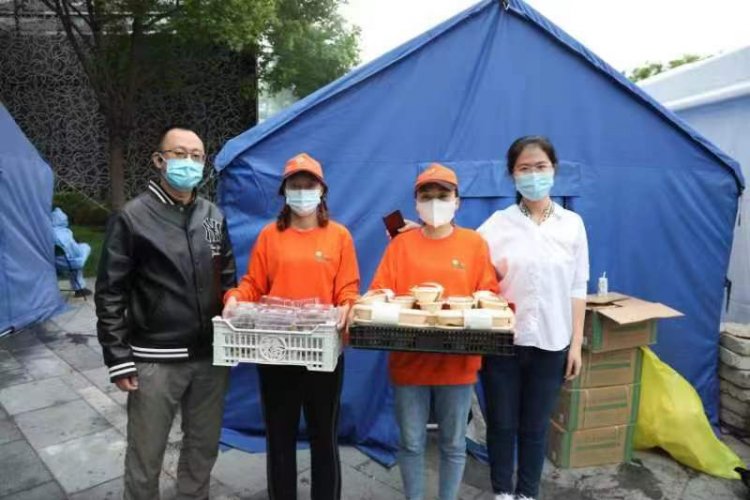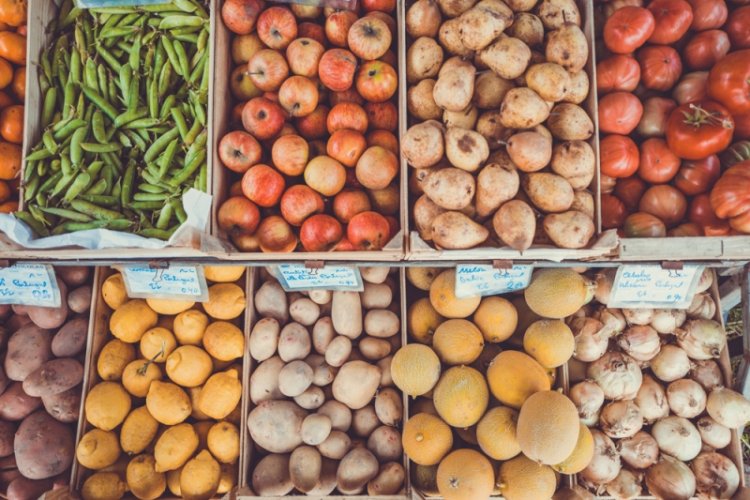Fensi Noodles Are Made of Plastic, and 9 Other China Food Myths That You Should Know
If you've lived in Beijing long enough, you've probably heard all kinds of hackneyed food-related rumors. These old wives' tales span everything from “be careful of fensi noodles and seaweed as they can be made from plastic,” “eating crab and persimmon at the same time is likely to poison you,” and “pork blood and mu’er mushrooms can protect you from PM2.5.”
Although China is its own worst enemy when it comes to food scandals, the general population is gradually wising up to the dangers of certain foods, and arguably more important, the conditions in which meals are produced. While it pays to be conscious of what you're putting in your body, there are a number of pervasive food myths that continue to permeate society. Here are some which we definitely know not to be true.
Myth 1: Seafood + Vitamin C = Poison
Rumor: Eating seafood alongside vitamin C will poison you.
Fact: The only way in which you could be poisoned by eating seafood and vitamin C is if you ate several kilograms of arsenic-contaminated crabs as well as the equivalent of five kilograms of tomatoes, making it nearly impossible. “Vitamin C can transform pentavalent arsenic into trivalent arsenic under laboratory conditions, but it’s hard to replicate in normal conditions,” explains Zhu Yi, deputy professor at the College of Food Science at China Agricultural University.
Myth 2: Pig's blood and mu’er fungus can protect you from PM2.5
Rumor: Pig's blood, due to the detoxifying plasma proteins held within, has the ability to absorb toxins in your body. The plasma is said to react with dust and metal particles in your gut, transforming them into non-absorbable material that is then excreted through the digestive tract. Likewise, mu’er, or wood ear fungus, performs a similar function for our lungs.
Fact: Theoretically, these foods can't cleanse our gut or lungs of harmful materials. In traditional Chinese medicine books, the beneficial function of pig's blood, duck's blood, and mu’er have never been outlined, but there is some research that shows that animal blood can help the digestive tract absorb fewer poisonous materials from our food, helping to excrete them instead. However, PM2.5 lodges itself in the bronchus of the lungs, and there is no solid proof that these foods can reach these areas or have any effect on them.
Myth 3: Eating poultry will give you bird flu
Rumor: Eating chickens that are infected with bird flu will pass the illness onto you, most likely causing death.
Fact: “The main way that people can be infected by the H7N9 virus is to be directly or indirectly exposed to an environment contaminated by infected birds, and there’s no proof that H7N9 virus can affect human beings through cooked meat,” states the National Health and Family Planning Commission. It's also useful to note that bird flu can’t be transmitted between human beings.
Myth 4: Eating pig’s feet can improve your looks
Rumor: Eating pig's feet will improve your looks.
Fact: “Collagen found in pig’s trotters is not made up of quality protein, and eating an egg or drinking a glass of milk is much better from the point of consuming protein,” our friend Zhu Yi from the College of Food Science at China Agricultural University says. “If your body is healthy, and you have no issue digesting or sleeping, then your skin will naturally be glowing.”
Myth 5: Eating bracken will give you cancer
Rumor: Bracken (a large, coarse fern) and bracken powder gives you stomach cancer.
Fact: “Whenever you see a rumor about a specific ingredient giving people cancer, don’t believe it, except for when it comes to smoking, which has been proven to increase the chances of getting lung cancer, throat cancer, and oral cancer. In order to get cancer from food, you would have to constantly eat that same ingredient over a very long period of time. The human body can self-regulate, so there usually isn't a big risk [from a single exposure to one type of food],” says Fan Zhijiang from the China Agricultural University.
Myth 6: Chlorine from boiling water causes cancer
Rumor: You must use boiled water to steam food because otherwise, “chlorine from non-boiled tap water will stick on the food and cause cancer.”
Fact: Beijing's tap water chlorine content is low and does not exceed the recommended amount. As a chemical, chlorine cannot give you cancer but it can aggravate respiratory conditions, and high concentrations of chlorine can lead to numerous health complications. “Adding chlorine to tap water is the simplest and most efficient way to disinfect it,” says Liu Qingjun from the Beijing Academy of Science and Technology. “During the boiling, the content of hydrochloric acid is far lower than it is in the human stomach, so there’s no need to worry about it. Also, after sampling tap water in Beijing throughout these years, none of the findings were beyond index.”
Additionally, boiling tap water kills microorganisms such as bacteria, viruses, or protozoans that can cause disease but it does not remove any metals or other contaminants that may be present due to old pipes or leakages.
Myth 7: Eggs with a paler eggshell have more nutrition
Rumor: A paler eggshell indicates that the egg has a higher nutritional value.
Fact: “The nutrition of an egg is connected with how the laying hen is raised, and the egg is fully formed before it is laid,” Zhu Yi explains. “In fact, it is eggs with red shells that contain more fat and have a higher calorific content than paler ones.”
Myth 8: Fensi noodles and seaweed are often made of plastic
Rumor: Food scammers often use plastic to make fensi noodles, a rumor that took hold after a video of a man setting fire to noodles went viral online.
Fact: To rebut the video, scientists pointed out that fensi are largely made from water and starch, the latter being a flammable carbohydrate, meaning that just because something is flammable doesn’t make it inedible or fake. However, the jury is still out on reports of fake rice made out of plastic, with one shipment suspected to have come from China ending up in Nigeria at the end of 2016.
Myth 9: Fruit enzyme extracts can help you detox
Rumor: Fruit enzyme extracts, usually sold in powder or liquid form, can break down fat and help you lose weight. The enzymes can also help purify your blood, improve your general health, and prevent hair loss.
Fact: Enzymes are a kind of protein, which when consumed remains inactivate in the stomach and do not aid weight loss. However, if the enzymes are contaminated by specific types of pathogenic bacteria, they can make the user sick and cause diarrhea. It would also do you good not to inject fruit juice directly into your veins, as one 51-year-old lady did in Hunan, nearly killing herself in the process.
Myth 10: If a cut potato doesn’t turn black, it has been genetically modified
Rumor: If you cut a potato open and it doesn’t turn black through oxidation then it is a genetically modified potato.
Fact: Officially, there are no genetically modified potatoes planted in China, and whether a potato turns black (known as browning) or not is in no way related to its genetic makeup.
***
If there's anything that these rumors suggest, it's that if you come across something that doesn't look or smell quite right, do the sensible thing and don't put it in your mouth. For everything else, it's likely you'll be fine as long as you're not gorging on the same street food day-in and day-out.
READ: Beijing's Best Restaurants to Impress, Whatever the Occasion
Photos: Unsplash (1, 2, 3), giphy, nipic, Belarus, pighalle, gobotany







